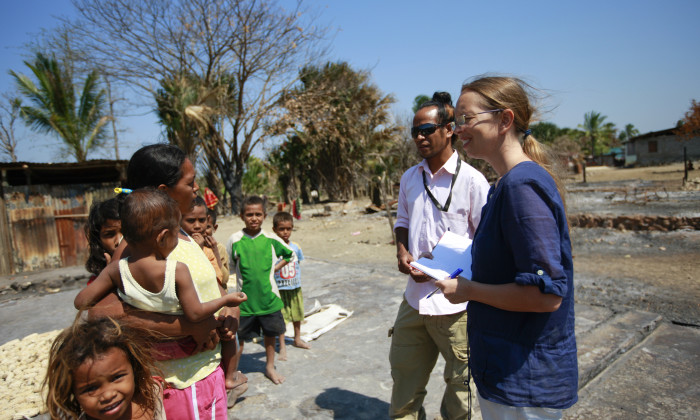Human Rights
The UN and the OSCE both have specialized agencies – the UN Office of the High Commissioner for Human Rights (OHCHR) and the OSCE Office for Democratic Institutions and Human Rights (ODIHR) – that lead the implementation of the organizations’ human rights work. The Universal Declaration of Human Rights (1948) and associated conventions form the normative basis for human rights work within and beyond peace operations. The EU derives its remit to promote human rights from the Lisbon Treaty (2009).
For virtually all OSCE and UN missions, human rights are a stand-alone mandated task as well as a task that is integrated into other mission activities. In that way, the promotion of human rights is a guiding principle for a mission’s work in the areas of >Protection of Civilians, >Women, Peace and Security, Children and Armed Conflict, >Reconciliation and Transitional Justice, >Rule of Law, >Policing, >Security Sector Reform and >Countering Terrorism and Violent Extremism.
The UN describes the goals of the human rights teams in their missions as follows: “to contribute to the protection and promotion of human rights through both immediate and long-term action; to empower the population to assert and claim their human rights; and to enable state and other national institutions to implement their human rights obligations and uphold the rule of law.” These objectives are also reflected in OSCE activities.
For peace operations, human rights work is a stand-alone mandated task as well as a task that is integrated into other mission activities. Examples:
- MONUSCO (Democratic Republic of the Congo)
- EUTM RCA (Central African Republic)
- OSCE Mission in Kosovo
 © Martine Perret
© Martine Perret
A typical activity within peace operations is human rights monitoring. For instance, the OSCE monitors trials in Kosovo as well as hate speech and hate crimes in the Republic of North Macedonia. At the end of 2025, the UN Special Political Mission in Haiti (BINUH) visited Haitian prisons together with OHCHR to assess compliance with human rights standards and identify gaps in protection. Peace operations also offer human rights training for government institutions and components of the security sector. For example, the OSCE conducts such training for correction officers in Turkmenistan and judges in Uzbekistan, as does the EU as part of its training of the national armed forces in the Central African Republic (EUTM RCA).
A further important element is support for civil society organizations and national human rights bodies. In the Central African Republic, the UN mission (MINUSCA) is strengthening the capacities of the national human rights commission. In Macedonia, the OSCE supports the work and further development of the anti-discrimination commission. Related activities include efforts to raise public awareness and enhance knowledge of human rights. In the Democratic Republic of the Congo, for example, MONUSCO supports victims’ rights organizations that are working to increase victims’ access to justice.
As of 02.02.2026